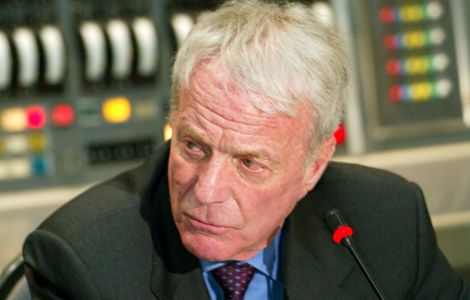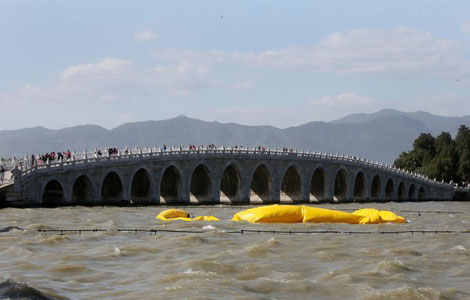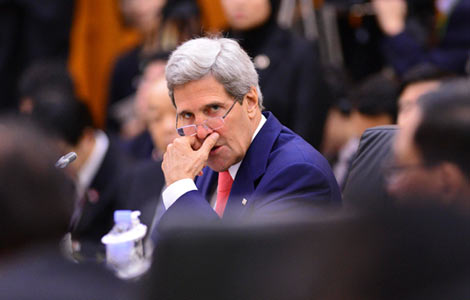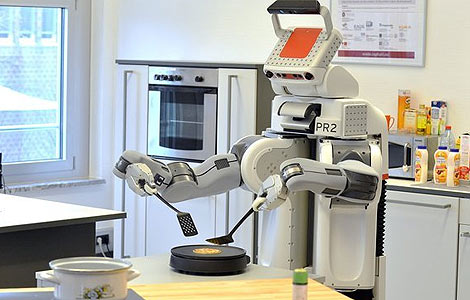KFC needs new faces, not new ad campaign: Crisis expert
Updated: 2013-10-11 10:56
By Michael Barris in New York (China Daily)
|
||||||||
Yum Brands should "bring in new faces" to manage its scandal-tainted KFC restaurants in China rather than try to win back customers' trust through a new advertising campaign, a crisis-management expert said.
"Generally in crisis communications, someone resigns," David Johnson, CEO of Strategic Vision LLC, said in an interview.
Johnson was responding to the announcement by Yum CEO David Novak that the operator of 6,000 KFC, Pizza Hut and other stores in China will launch an advertising campaign next month to reassure customers in China that its chicken products are safe. The company is facing a backlash from consumers there after an outbreak of avian flu in the spring turned diners off poultry and an investigation late last year focused on a chicken supplier whose food contained an overabundance of antibiotics.
These factors - along with increased competition from expanding restaurant chains in China, one of Yum's biggest markets - contributed to a 68 percent plunge in the Kentucky-based company's third-quarter profit, prompting it to lower its 2013 earnings outlook.
In a conference call on Wednesday with analysts and journalists after the company's earnings release, Novak said the ad campaign will feature "representatives of our over 300,000 KFC employees, buyers and poultry farmers in China" pushing the message that "KFC is safe for my family, friends and me and hence, safe for you". The ads will run in tandem with a social media campaign that will involve Yum employees and suppliers emphasizing that "KFC's brand is part of the fabric of China", the CEO said.
Yum tried earlier this year to combat negative publicity over its problems through advertising campaigns on top of taking what it said were steps to enhance supply-chain safety.
During the call, Novak and CFO Patrick Grismer sought to assure listeners that the company was doing everything possible to "rebuild consumer trust in the KFC chain" and pull the China segment out of its financial quagmire. Observing that profit margins at restaurants open at least a year in China saw a profit margin of 20 percent, Novak predicted the China operations would begin a "full recovery" in 2014.
But Johnson said those lofty words might please investors but would not score points with the group that mattered most - customers.
"The consumers don't listen in to those (conference calls)," Johnson said. "What that conveys is, yeah, you're making the profits, but you don't care. In crisis communications you want to admit there's a mistake. You've got to take some responsibility and it ultimately falls on their team."
Johnson said Yum's reaction to the crisis so far has been typical of big companies that try to manage adversity with publicity campaigns instead of "apology campaigns" - which invariably include a higher-up getting sacked - or at least reassigned to a new position.
"The biggest problem for a corporation is not acknowledging a mistake and that they may have done something wrong," Johnson said.
He predicted that as the Yum saga unwinds, management will "go along with the kind of verbiage they have in the commercials. But the apology campaign is when they'll finally say, "We did screw up. It was partly our responsibility. We're taking steps to make sure this will never happen again. We brought in a new team.
"I'm not saying they need to fire them," he said, "but they need to bring in new faces."
A Yum communications official declined to comment on Novak's announcement and referred a reporter to an archived recording of the CEO's statements on the company's website.
Hairong Li, a professor in Michigan State University's advertising and public relations department, said he agrees with Johnson that "apologies alone are not enough" and that "responsible executives must be fired for the fault".
"The company must show it is sincere about preventing the problem from happening again before it can regain the confidence of Chinese consumers," Li said.
michaelbarris@chinadailyusa.com
(China Daily USA 10/11/2013 page11)
Most Viewed
Editor's Picks

|

|

|

|

|

|
Today's Top News
Nobel literature winner's work snubbed in China
Opportunity knocks for US businesses
KFC needs new faces, not new ad campaign
Trending news across China on Oct 11
Xi ignites Australia's zeal for FTA deal
Fire at Fukuoka hospital leaves 10 dead
Yellen will focus on domestic economy
IMF cautions over DC debt drama
US Weekly

|

|














